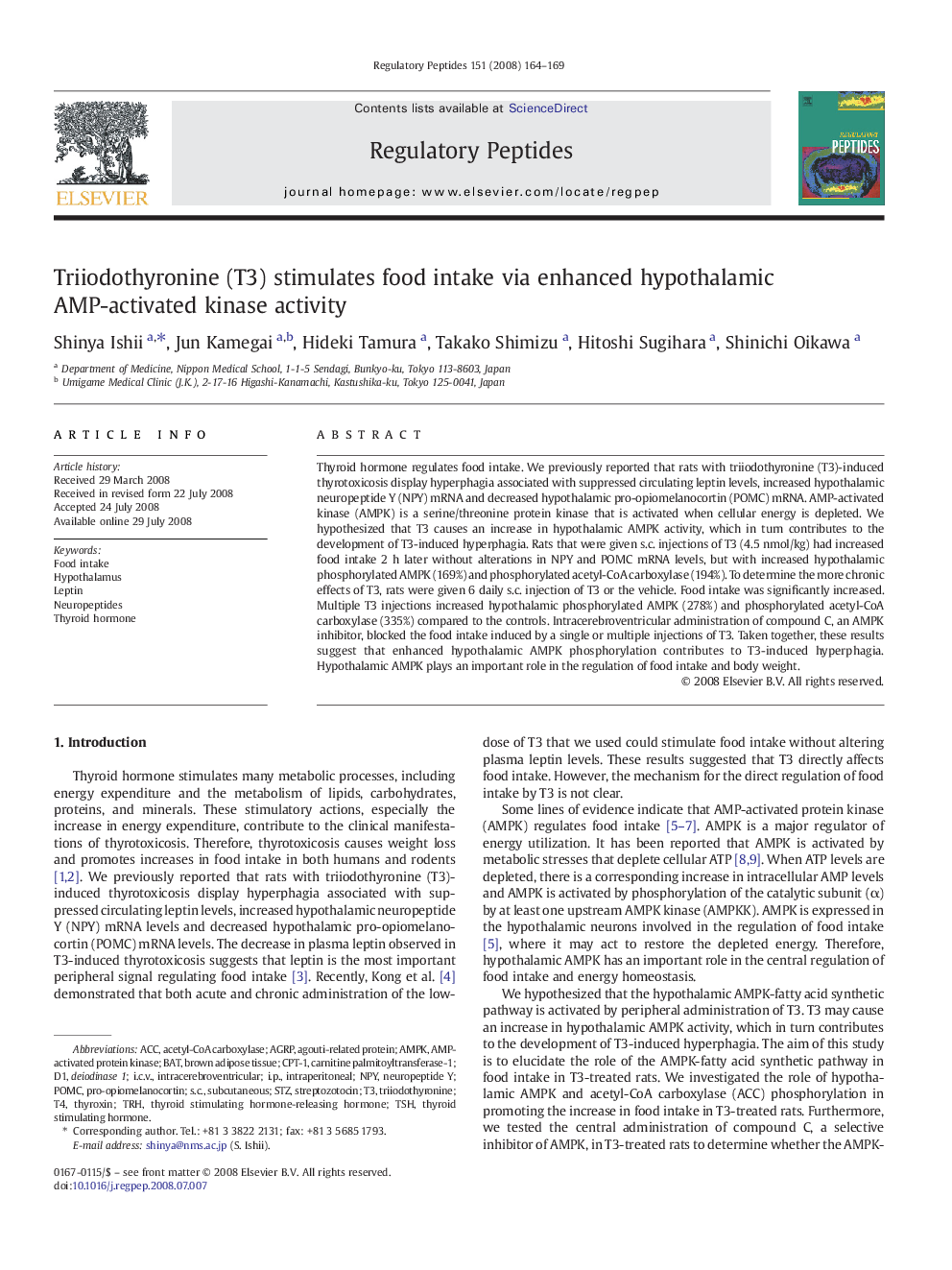| Article ID | Journal | Published Year | Pages | File Type |
|---|---|---|---|---|
| 2023038 | Regulatory Peptides | 2008 | 6 Pages |
Thyroid hormone regulates food intake. We previously reported that rats with triiodothyronine (T3)-induced thyrotoxicosis display hyperphagia associated with suppressed circulating leptin levels, increased hypothalamic neuropeptide Y (NPY) mRNA and decreased hypothalamic pro-opiomelanocortin (POMC) mRNA. AMP-activated kinase (AMPK) is a serine/threonine protein kinase that is activated when cellular energy is depleted. We hypothesized that T3 causes an increase in hypothalamic AMPK activity, which in turn contributes to the development of T3-induced hyperphagia. Rats that were given s.c. injections of T3 (4.5 nmol/kg) had increased food intake 2 h later without alterations in NPY and POMC mRNA levels, but with increased hypothalamic phosphorylated AMPK (169%) and phosphorylated acetyl-CoA carboxylase (194%). To determine the more chronic effects of T3, rats were given 6 daily s.c. injection of T3 or the vehicle. Food intake was significantly increased. Multiple T3 injections increased hypothalamic phosphorylated AMPK (278%) and phosphorylated acetyl-CoA carboxylase (335%) compared to the controls. Intracerebroventricular administration of compound C, an AMPK inhibitor, blocked the food intake induced by a single or multiple injections of T3. Taken together, these results suggest that enhanced hypothalamic AMPK phosphorylation contributes to T3-induced hyperphagia. Hypothalamic AMPK plays an important role in the regulation of food intake and body weight.
